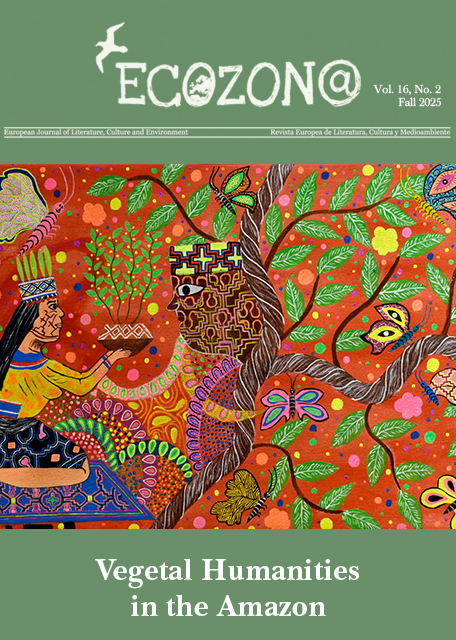Vegan Studies as Ecofeminist Intervention
DOI:
https://doi.org/10.37536/ECOZONA.2020.11.2.3516Parole chiave:
veganism, Green New Deal, climate crisis, United States PoliticsAbstract
On November 5, 2019, 11,000 scientists from 153 countries declared a climate emergency, and their report presents in stark terms the nature and certainty of the crisis, providing six paths forward, one of which focuses on agriculture: “eating mostly plant-based foods while reducing the global consumption of animal products . . . can improve human health and significantly lower GHG emissions” (Ripple et al. 4). We have been given a plan to help us mediate this crisis, but what will it take for us to act on it, or, for that matter, to discuss the “animal question” in ways that are not predicated on vitriolic fear and willful disdain of plant-based consumption? In this essay, I offer a vegan studies approach as a theoretical and lived ecofeminist intervention in a political moment characterized by environmental uncertainty, overt racism, misogyny, and anti-immigrant policies that have become conflated with the presumed threat veganism poses to an increasingly authoritarian present.
Downloads
##submission.downloads##
Pubblicato
Fascicolo
Sezione
Licenza
Authors who publish with this journal agree to the following terms:
a) Authors retain copyright and grant the journal right of first publication with the work simultaneously licensed under a Creative Commons Attribution License that allows others to share the work with an acknowledgement of the work's authorship and initial publication in this journal (CC BY-NC for articles and CC BY-NC-ND for creative work, unless author requests otherwise.
b) Authors are able to enter into separate, additional contractual arrangements for the non-exclusive distribution of the journal's published version of the work (e.g., post it to an institutional repository or publish it in a book), with an acknowledgement of its initial publication in this journal.
c) Authors are permitted and encouraged to post their work online (e.g., in institutional repositories or on their website) prior to and during the submission process, as it can lead to productive exchanges, as well as earlier and greater citation of published work (See The Effect of Open Access).










